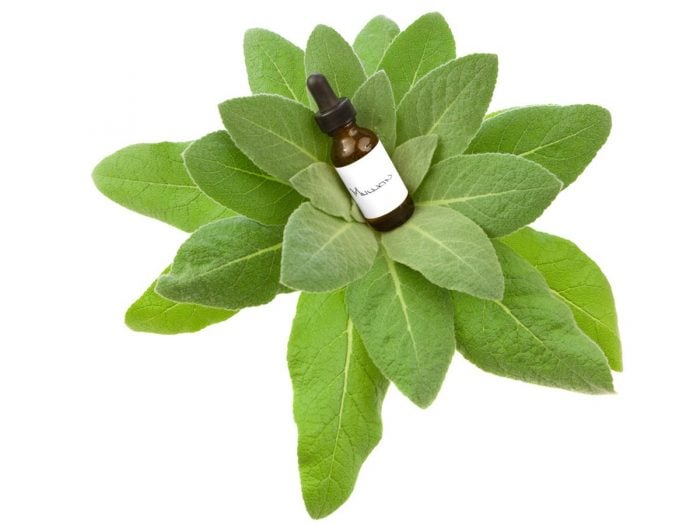Mullein leaves have been in use for generations in traditional medicine, and still, hold a number of potential health benefits when used properly.
What is Mullein?
Mullein is a general name for a large genus of flowering plants called Verbascum; the most commonly used species from this genus being Verbascum thapsus. For thousands of years, the leaves of these plants have been used for herbal medicine, and certain parts of the plant are still used today. Commonly found in the United States, as well as areas of Europe and Asia, this herb is safe to use internally in medicinal quantities, although there are some side effects. In many areas, the hardiness of this plant has made it an invasive species, particularly in agricultural farmland. [1]

Mullein weed is useful for symptomatic treatment of sore throat and cough. Photo Credit: Shutterstock
While it may seem counterintuitive, you can actually smoke these leaves to improve lung health, due to the active ingredients of the plant. Those active ingredients include unique compounds, such as verbascose and verbasterol, as well as coumarins, ascorbic acid, saponins, and other antioxidants. For this reason, this herb can be ingested, smoked or applied topically in different forms to alleviate a wide range of ailments. [2]
Mullein Benefits
There are many impressive benefits to using mullein leaves, particularly for respiratory ailments, cardiovascular health, and various infections, among others.
- Bursitis: Using the leaves or flowers topically on the knees to calm bursitis
- Ear infection: Crushing mullein leaves into a paste to alleviate ear infections [3]
- Disinfectant: Brewing the leaves into a tea or tincture can be used as a disinfectant
- Respiratory health: Soothing respiratory ailments, such as asthma, sore throat, and dry cough
- Chest infections: Speeding up recovery from bronchitis and chest infections
- Wounds: Antiseptic, antiviral, and antibacterial agent for topical inflammation and wounds [4]
- Hair care: Stimulating hair growth and protect against dry scalp
- Inflammation: Soothing inflammation from gout and migraines
- Heart health: Aiding in heart health by reducing inflammation of blood vessels
- Stomach upset: Treating stomach upset, constipation, and diarrhea
Mullein Uses
As mentioned, there are many uses for mullein, and it is not only the leaves but also the seeds and flowers that can aid in your herbal healing.
- You can brew the dried leaves into a tea
- You can extract the essential oil from these leaves
- You can mix crushed leaves into a smoking blend
- The leaves and flowers can be made into a tincture
- You can crush the seeds and mix them with water to form an anti-inflammatory paste
While this plant has been used for thousands of years, there is still a dearth of modern research on the many effects, but the anecdotal evidence is overwhelming. [5]
Mullein Side Effects
Despite the many health benefits outlined above, there are a number of potential side effects when using mullein, particularly, in excess.
- If you are pregnant or breastfeeding, be sure to speak with your doctor before using this herb in any form, due to its many active ingredients.
- Some people also experience contact dermatitis or the symptoms of a skin allergy when using this herb topically.
To avoid these side effects, it is best to apply a small amount of a topical remedy on a patch of skin and wait for 12-24 hours to see if there is any inflammation or redness. This allergy check is particularly important to try before ingesting or smoking these leaves, as that could result in far more unpleasant side effects. [6]
